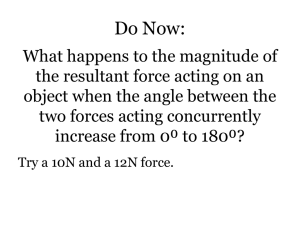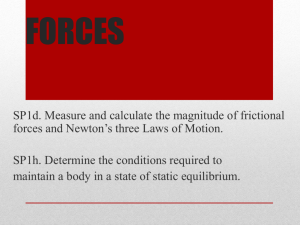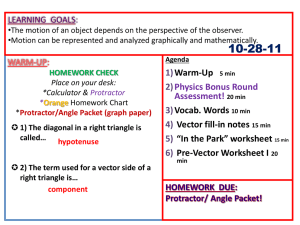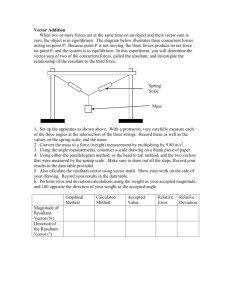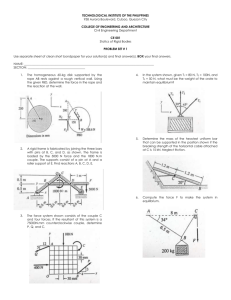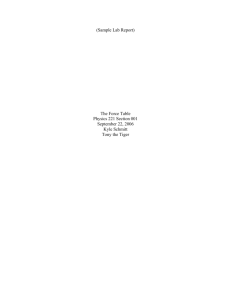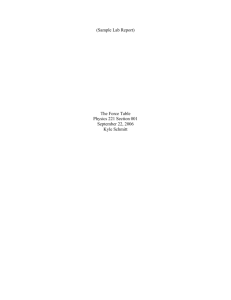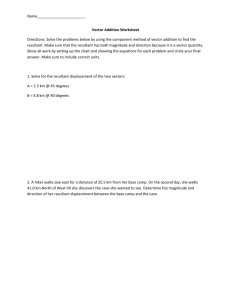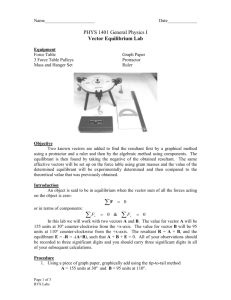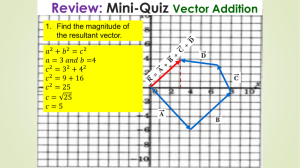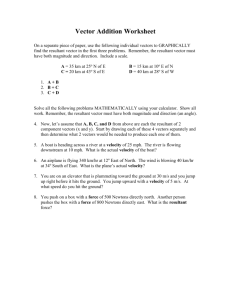Vector Addition & Static Equilibrium Lab Report
advertisement
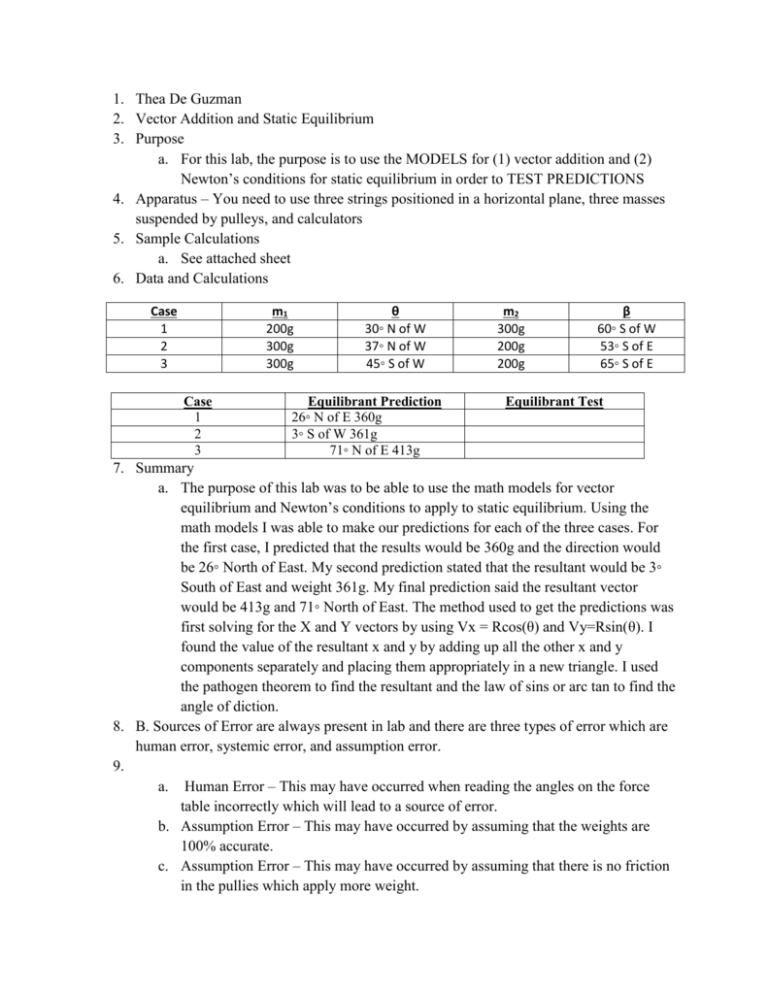
1. Thea De Guzman 2. Vector Addition and Static Equilibrium 3. Purpose a. For this lab, the purpose is to use the MODELS for (1) vector addition and (2) Newton’s conditions for static equilibrium in order to TEST PREDICTIONS 4. Apparatus – You need to use three strings positioned in a horizontal plane, three masses suspended by pulleys, and calculators 5. Sample Calculations a. See attached sheet 6. Data and Calculations Case 1 2 3 m1 200g 300g 300g Case 1 2 3 θ 30◦ N of W 37◦ N of W 45◦ S of W Equilibrant Prediction 26◦ N of E 360g 3◦ S of W 361g 71◦ N of E 413g m2 300g 200g 200g β 60◦ S of W 53◦ S of E 65◦ S of E Equilibrant Test 7. Summary a. The purpose of this lab was to be able to use the math models for vector equilibrium and Newton’s conditions to apply to static equilibrium. Using the math models I was able to make our predictions for each of the three cases. For the first case, I predicted that the results would be 360g and the direction would be 26◦ North of East. My second prediction stated that the resultant would be 3◦ South of East and weight 361g. My final prediction said the resultant vector would be 413g and 71◦ North of East. The method used to get the predictions was first solving for the X and Y vectors by using Vx = Rcos(θ) and Vy=Rsin(θ). I found the value of the resultant x and y by adding up all the other x and y components separately and placing them appropriately in a new triangle. I used the pathogen theorem to find the resultant and the law of sins or arc tan to find the angle of diction. 8. B. Sources of Error are always present in lab and there are three types of error which are human error, systemic error, and assumption error. 9. a. Human Error – This may have occurred when reading the angles on the force table incorrectly which will lead to a source of error. b. Assumption Error – This may have occurred by assuming that the weights are 100% accurate. c. Assumption Error – This may have occurred by assuming that there is no friction in the pullies which apply more weight.
